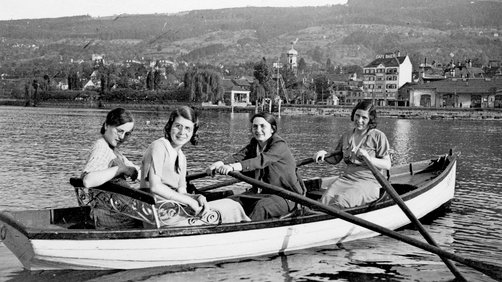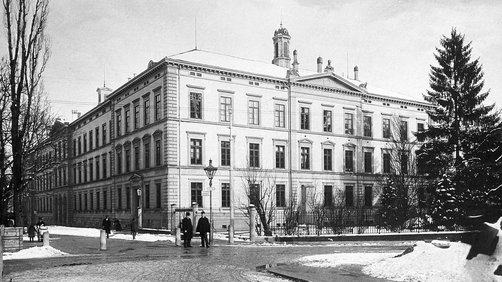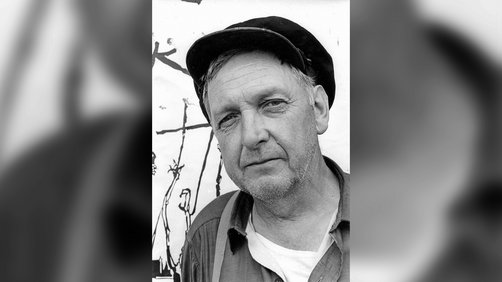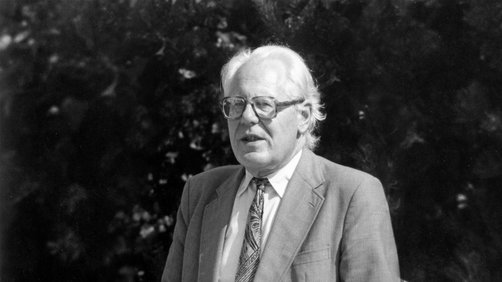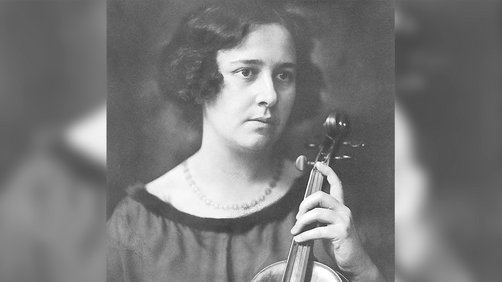Background - 22.08.2019 - 00:00
History lesson: Ludwig Erhard – champion of the social market economy
The German politician Ludwig Erhard, who has hardly ever seen without a cigar, was a proponent of the social market economy and is regarded as the symbolic figure of the "German economic miracle". In our history lesson, you can learn what the ties were between Ludwig Erhard and the HSG.
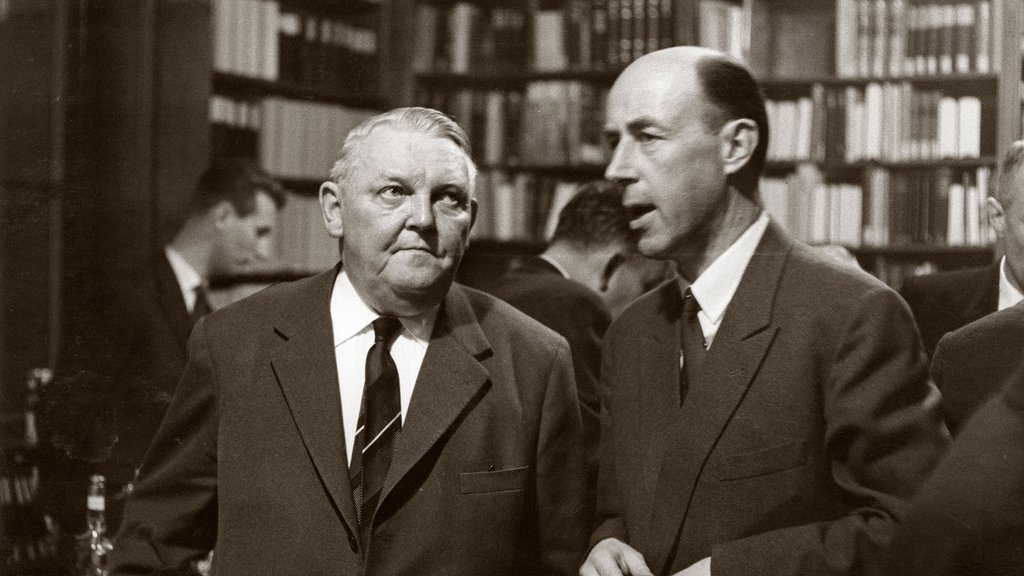
Ludwig Erhard was born in Fürth in 1897 as the son of a textile merchant. After attending secondary school, he served a commercial apprenticeship in Nuremberg until 1916. In the First World War, he served in the artillery and was seriously wounded on the Western front in 1918. From 1919 to 1922, he studied at Nuremberg Business School and was awarded a degree in business administration. He continued his studies in business administration, economics and sociology at the University of Frankfurt am Main, from which he obtained a doctor’s degree for a thesis on currency policy in 1925. After a few years as the general manager of his parents’ company, he moved to the Institute of Economic Observation of the German Finished Goods Industry in 1928 to become a research assistant and, later on, the deputy director. In 1942, he set up the Institute for Industry Research, which was funded by Reichsgruppe Industrie and which he headed until 1945.
From 1945, Erhard quickly rose in the world of politics, to begin with as Secretary of State for Trade and Small Business in the Bavarian government (until 1946). In 1949, he was appointed Federal Minister of Economic Affairs under Konrad Adenauer. As a champion of the social market economy, many of his contemporaries regarded the corpulent avid cigar smoker as the symbolic figure of the “German economic miracle”. In 1957, he became Vice-Chancellor, and after Adenauer’s resignation in 1963, Federal Chancellor, an office he held until 1966.
Honorary Doctorate from the Graduate School in 1961
Erhard also had ties to the St.Gallen Graduate School of Economics. Thus he gave lectures at the HSG as early as 1950 and 1953. On the Graduate School’s dies academicus in 1961, he was awarded an Honorary Doctorate in Economic Sciences. Unfortunately, Erhard was unable to attend as he was otherwise engaged when President Prof. Walter Adolf Jöhr read the laudation:
"This honour is being conferred in appreciation of his unshakeable belief in the rightness of the doctrine of the self-regulation capacity of the competitive economy, his unflagging efforts in favour of a liberal organisation of European economic relations and his historically unique services to the realisation of his conceptualisation of a social market economy. This conceptualisation does not only constitute the prerequisite for a rapid economic rise of the West German economy but also supplies all the other countries with proof of the fact that the competitive system, which is the indispensable guarantor of freedom, is outstandingly efficient."
Celebrations for the presentation of the Honorary Doctor’s degree certificate
The solemn presentation of the degree certificate was finally staged in St.Gallen in early 1962: immediately after a visit to President John F. Kennedy in Washington and even before he informed his cabinet about the discussions, Erhard travelled to St.Gallen, where he was the guest of honour at a dinner at President Jöhr’s house on 14 January. The other guests were Cantonal Minister Guido Eigenmann, Mayor Emil Anderegg and his wife, and Professor Hans Bachmann and his wife. On the following day, Erhard had lunch at Prof. Hans Bachmann’s house before visiting the new institute building and the new graduate school buildings on the Rosenberg, whose shell had been completed by then. Late in the afternoon, the Governors of the Graduate School and the professors held a small reception on the School’s library premises in Notkerstrasse. At 5.30 p.m., the School’s fraternities paraded in front of the Graduate School, and at 6.30 p.m., the formal dinner organised by the Cantonal Government, the Municipal Council and the Graduate School took place in the Hecht Hotel.
The ceremony proper took place in the packed big hall of the Concert Hall in the evening. Since this hall was not large enough, the ceremony was also transmitted to the ground floor hall. The ceremony was also attended by Federal Councillors Dr. Wahlen and Dr. Schaffner, the FRG’s ambassador in Berne, Dr. Mohr, Switzerland’s ambassador in Bonn, Dr. Escher, the Prime Minister of the Principality of Liechtenstein, Dr. Frick, representatives of the Federal Administration, members of the governments of various cantons and many other prominent guests. After the detailed laudation and presentation of the degree certificate by President Prof. Walter Adolf Jöhr, Erhard spoke without notes about the “Problems of European and Atlantic Integration”. The audience thanked him with an enthusiastic round of applause.
Immediately after this ceremony, a reception in honour of Ludwig Erhard was given by the Cantonal Government, the Municipal Council and the Graduate School in the Schützengarten Congress Hall. On that occasion, it was Prime Minister Dr. Simon Frick and Federal Councillor Dr. Wahlen who congratulated the new Honorary Doctor and expressed their appreciation of his services. This concluded the festivities.
Later ties with St.Gallen and the HSG
In later years, too, contact with the HSG was continued. Thus in a letter of 8 November 1963, Ludwig Erhard warmly thanked President Otto K. Kaufmann and the members of the Senate for their congratulations on his election as Federal Chancellor and for the enclosed facsimile of the plan of the Abbey of St.Gallen: “The plan makes palpable the great spiritual force which made St.Gallen a significant place in Christendom and to which we are all indebted.”
Ludwig Erhard died in Bonn in 1977.
History portal of the University of St.Gallen
More articles from the same category
This could also be of interest to you
Discover our special topics



![[Translate to English:] Choix Goncourt de la Suisse | unisg.ch](https://www.unisg.ch/fileadmin/_processed_/b/a/csm_Choix_Concourt_de_la_Suisse_HT-Stibi-069_2110740678.jpg)

